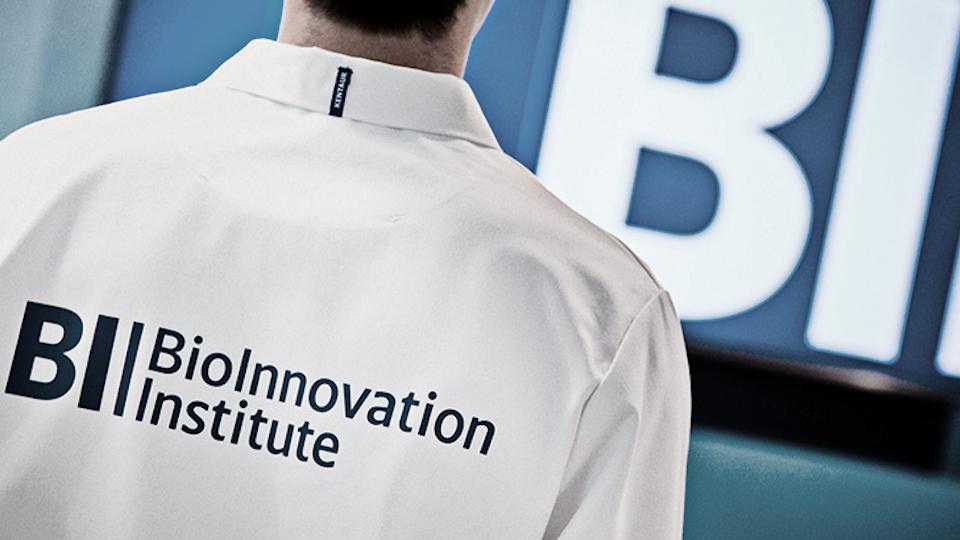While diabetes & obesity fund Novo Nordisk, its Foundation funds their prevention

The Novo Nordisk Foundation is not a charitable organisation owned by the pharma company Novo Nordisk. In fact, it’s the other way around, more or less. The Foundation owns Novo Holdings, an investment vehicle that owns controlling shares in Novo Nordisk and NovoZymes.
This was the first thing I learned when I had the opportunity to travel to the Foundation’s headquarters in Copenhagen a few weeks ago for a series of presentations from leaders at the Novo Nordisk Foundation and Novo Holdings, including Mads Krogsgaard Thomsen and Kasim Kutay, their respective CEOs.
The Foundation has its roots in an oft-told story about the discovery of insulin: Canadian scientists gave August Krogh permission to manufacture and sell insulin in Scandinavia in exchange for a promise that the drug would be affordable and the profits would be used for scientific and humanitarian purposes.
Whether the first part of that promise was fulfilled is a contentious question at best. But the second part surely lives on in the Novo Nordisk Foundation, which gives out grants for health and life sciences research and projects, and Novo Holdings, which practices impact investing in life sciences areas where the need is high and free market incentives are insufficient.
The century-old foundation has €108 billion in total assets, €21 billion of which is accessible, and Novo Holdings manages $134 billion USD, $28 billion of which lives outside of those two core holdings, Novo Nordisk and NovoZymes.
At a series of presentations in Copenhagen, researchers and executives from the Foundation laid out some of their key areas of investment for assembled journalists. In part one of this column, I’m going to talk a bit about the foundation’s work with cardiometabolic diseases. In part two, we’ll look at efforts around antibacterial resistance, and finally, in part three, we’ll take a look at the Foundation’s new Cellerator and their work in the stem cell space.
Cardiometabolic diseases
Given Novo Nordisk’s history with diabetes, and its current association with weight loss drugs, it makes sense that cardiometabolic disease should be one of the main focuses of the Foundation’s philanthropic efforts.
“Cardiometabolic disease all starts with obesity in infancy, childhood, and adolescence, it’s followed up by Type 2 diabetes, which more than half a billion people suffer from today, and that typically leads to increased risk of cardiovascular disease myocardial infarction and strokes, something that is today the number one killer on earth,” Thomsen said at the event. “10% or more on average of all society’s health expenditure is related to cardiometabolic disease. Not so much prevention, unfortunately. Rather, treatment of all the comorbidities and complications”
The Foundation takes a “cradle to grave” approach to funding both research and intervention around cardiometabolic disease. In fact, they start pre-cradle, with multiple ongoing longitudinal studies looking at the effects of obesity during pregnancy on children’s lifelong health.
Other research efforts include a sleep study on the effects of poor sleep on children’s metabolisms and the LIGHTCom study to develop and evaluate new, multifactorial, non-pharmaceutical obesity management programmes for adults.
Another study is looking at early heart disease detection and intervention in young adults.
“Cardiovascular prevention has to start early because at age 20 to 30 many people develop early atherosclerosis, but they don’t know it,” Thomsen said. “So, one of our ambitions is actually using an early detection and monitoring initiative [to] see which people have early atherosclerosis and intervene with statin therapies and other ways of reducing atherosclerosis, will these people be at lower risk later on of encountering true cardiovascular disease? These are simple interventions that might save an awful lot of money and an awful lot of suffering.”
They fund and work with organisations inside and outside Denmark, including the Centre for Childhood Health, the Center for Metabolic Research, and the Broad Institute.
“Our vision is that we should be able to prevent, rather than intervene, but if we cannot prevent it then the research that we fund should at least be able to supply the optimal conditions for intervention,” Thomsen said.
Separating the pharma company and the foundation
This area, in particular, illustrates the separation between the Foundation and Novo Nordisk, as the prevention of obesity directly cuts into the market for Novo Nordisk’s main money-makers: insulin and weight loss drugs. Yet, it’s the profits from those sales that get poured into this research. With a problem as widespread as obesity, it’s hard to see this as a practical, rather than merely theoretical, conflict of interest. But it does illustrate how the Foundation’s position at the top of the org chart allows it to keep its long-term, societal interests separate from Novo’s shorter term, business-oriented interests.
For his part, Thomsen sees the success of new weight loss drugs as a positive motivator for research into obesity and cardiometabolic disease.
“From a scientific and medical perspective, [the success of Wegovy] does change certain things because […] there’s been this dogma that obesity is not considered a serious disease,” Thomsen said. “I think what we’re seeing now is a change that for the first time you can, in a safe and sound and efficacious manner, treat this condition, which opens up [...] in my view for a whole new innovation curve because the research into obesity, unlike cancer and many other areas, has been totally under-prioritised. What you will see going forwards, including at our Foundation, is there will be much more focus on what is the next level of innovation: Are there new targets? Can we increase energy expenditure and not just suppress appetite? So, it spurs a whole array of, you can say, scientific activities at universities, in biotech companies, which were not there just two years ago.”
Editor’s note: The Novo Nordisk Foundation provided lodging in and transportation to Copenhagen for our correspondent. The Foundation was not given any assurance of editorial coverage of the event, positive or negative, nor were they granted prior review of any editorial materials.













